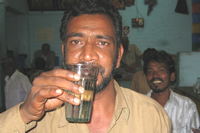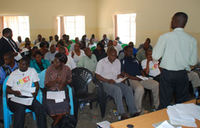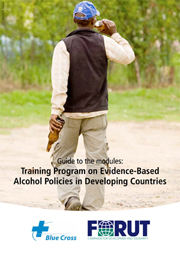Tools for change
Development agencies, NGOs, and government institutions that plan to integrate alcohol and drug prevention into their programs need a toolkit for action. The tools presented here seek to ease the way for non-specialist agencies to become involved in such issues and to provide a solid knowledge base for planning interventions to reduce alcohol- and drug-related problems.
If you have suggestions for improvements or any questions concerning the material, please contact us at add@forut.no
Understanding the problem of substance use
In order to design prevention efforts which yield the expected results it is important to understand the problems of substance abuse properly, to build on existing evidence and experience and to choose the right strategies and interventions. The following are some brief key words to designing effective and knowledge-based prevention programmes.
A rapid assessment of the alcohol and drug situation
This article contains a simple tool to make a systematic assessment, however not scientific, of the alcohol and drug situation in a given country or population, by a combination of statistical data and practical experiences.
What to do?
A step-by-step guide to interventions
The following are ten recommended steps for development organizations with the intention to integrate alcohol and drug prevention in their projects and programmes. The first five steps are for defining and understanding the challenge, while the latter five are for planning of interventions.
Check-list for effective alcohol policies
An alcohol policy is typically understood as an authoritative decision or document by governments to minimize or prevent alcohol-related harm to individuals and the society. Alcohol policies can, when carefully designed and effectively implemented, contribute towards increased welfare and safety, improved public health and towards social development in nations and communities.
Independence from vested interests
Young people in developing countries have been defined as promising markets for the multinational alcohol industry. Several reports have revealed that both traditional and new, sophisticated marketing methods are used to introduce drinking habits and alcohol brands to minors, in spite of the fact that many of the industry’s own codes of conduct ban this type of marketing.
Training Programme on Evidence-based Alcohol Policy
A new Training Manual to support evidence-based alcohol policy development in low income settings is now available! The manual has been developed on the basis of pilot trainings in seven African countries.






